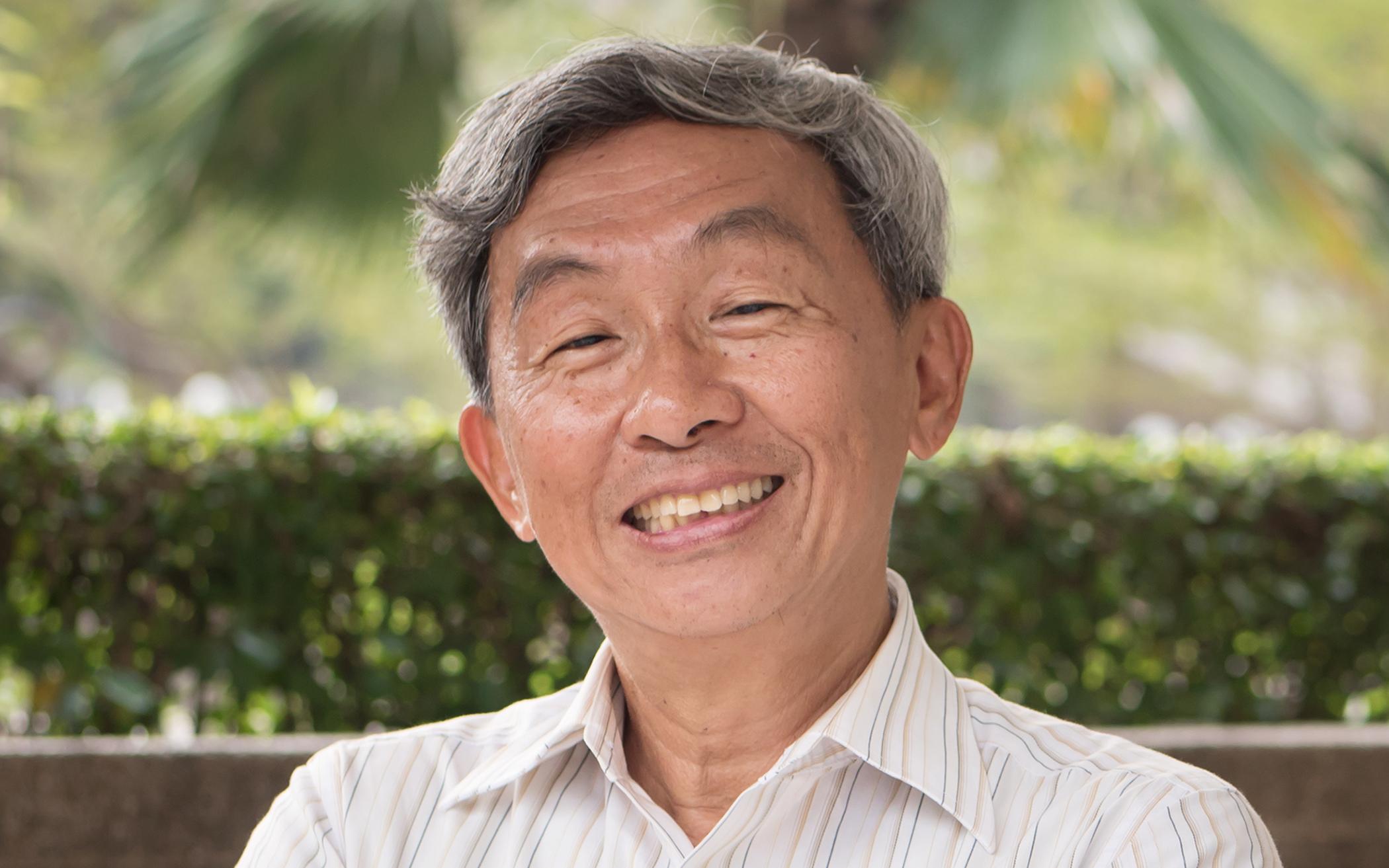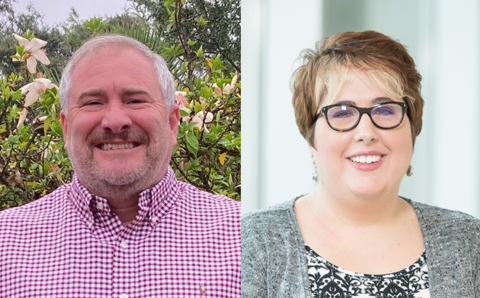“A church is not a building but its people.”
You’ve likely heard some version of this statement, perhaps more often in the last year and a half as most congregations closed their buildings’ doors due to COVID restrictions. At the same time, the global church began to ask deeper questions, like “What does ‘church’ mean?” or “What do I most value about my church and how can we keep that going?”
Even before the pandemic, the Christian Reformed Church and its global partners had been asking these important questions. Christians in China desperately needed more biblical materials in their language. Meanwhile, right in North America, church leaders have been trying to stem the exodus of many young people from their congregations.
This article will explore examples of people in different areas of the world reimagining church for a variety of reasons.
Reimagining in China
In 2015, Jerry An received a curious message: “I think I know who you are.”
The message included a link to an account on the popular Chinese social media platform WeChat, and it used many of the same tools and applications for sharing God’s Word that An, who serves as the Chinese ministry leader of ReFrame Ministries, presents to Chinese-speaking leaders.
The sender was mistaken, but the account was clearly the work of a technically skilled Christian who was forward-thinking about the role of apps and social media in the Chinese church. An’s curiosity was piqued.
Meeting Wang
An learned the account was run by Wang, an IT professional living in China. Before the end of their first conversation, An knew he wanted Wang to partner with ReFrame (then Back to God Ministries International).
But this partnership would come at a cost.
Because Wang was in China, all of ReFrame’s WeChat accounts would have to be registered under his name. This meant the Chinese government could hold Wang accountable if they found out what he was doing.
“Wang was aware of the risk, but he saw it as necessary,” An said.
As part of ReFrame’s team, Wang began developing new WeChat accounts and a website to support them. The accounts provided audio Bible messages and devotional resources to Chinese users despite the government restrictions placed on most Christian content.
By mid-2021, more than 200,000 people were reading and responding to the gospel messages through the channels that Wang built.
Heartbreaking News
In 2018,Wang was diagnosed with a rare bone marrow disease. Soon his entire immune system began to break down, and in the summer of 2021, Wang died.
Even as Wang battled this disease, he never gave up trying to share his gifts for God’s kingdom.
“My symptoms have made it hard to work over the past year,” he wrote in a message to An. “I should have done more despite those things. I’m ashamed of my shortcomings.”
In the same week that Wang died, the Chinese government shut down the largest WeChat account he managed, leaving 200,000 people without their regular flow of Bible passages, reflections, and audio guides.
Just a few weeks later, the government also shut down ReFrame’s devotional page, which had an additional 40,000 followers.
Next Steps
Though losing Wang has been devastating, ReFrame’s Chinese ministry team is moving forward with sharing the gospel.
“Brother Wang gave five years of his life to this ministry, and by doing so he transformed how we work and set us up as a new media ministry,” An said. “The whole team is indebted to him.”
In the short term, An plans to focus on publishing books for Chinese Christian leaders and seekers. Still, he and his team are constantly monitoring the Chinese government’s next moves as they seek to continue using the accounts that haven’t been shut down and build new web tools.
“We see new media as the future of the church in China,” An added. “New media has no boundaries and offers us important ways of reaching out.”
Equipping New Leaders for a New Model of Church
Every year, Christian Reformed campus ministries send out hundreds of students who graduate with leadership skills. What if they were trained to start and lead new models of churches?
That’s exactly what Campus Ministry at Grand Valley State University, Calvin Theological Seminary, Resonate Global Mission, and local CRC congregations in West Michigan are working together to accomplish.
“Campus ministry students are trained leaders,” said Mark Wallace, Resonate’s campus ministry leader. “They’re often trained at leading large groups. They’re good at … having conversations about God with friends who don’t believe.”
The churches that campus ministry graduates will be starting won’t look like traditional CRC congregations. These student leaders are going to plant microchurches—small missional communities designed for people who have never been part of a church or people who have left the church.
“The way campus ministry functions is pretty similar to what we’re asking microchurch pastors to do,” said Cody Zuiderveen, a campus minister at Grand Valley who has been leading the training project.
Bivocational Leaders
It’s important to note that these graduates will be bivocational—they will work while also leading a church. It’s exactly how student leaders work while part of campus ministry.
“They are full-time students while giving significant time and attention to leading ministry in a missional way,” said Scott Stark, Grand Valley’s campus minister. “That would continue as they graduate. (They would) start their new job … while growing and learning and developing this microchurch.”
Stark and Zuiderveen will identify and recruit students this year for a cohort starting in the fall of 2022. Throughout the two-year program campus ministers will coach students, and Calvin Theological Seminary will provide support for theological training.
“Our hope is to make ministry training more accessible to a wider range of emerging ministry leaders, … not just those attending seminary for a full-degree program,” said Aaron Einfeld, director of admissions at the seminary.
Mentors from Congregations
Local churches will play an important role too. As students graduate, pastors and churches will take over mentorship roles.
“They need a context in which they can flourish in ministry after graduating—a congregation, a pastor, that affirms their call to ministry and is willing to walk alongside them to continue encouraging them,” Zuiderveen said.
Jim Boer, pastor of Monroe Community Church in Grand Rapids, Mich., is the first local pastor on board with this project.
“I get excited when I see the church find new ways to reach people with the message of Jesus,” he said. “I also get excited when our young and emerging leaders are given the opportunity to grow and sharpen their ministry skills. This is what being the church is all about.”
As people like Boer around the world step into new roles to address new challenges in the church, pray for God’s guidance to reimagine his congregations.
Reimagining Coffee Hour
What areas of your church do you take for granted that you can start dreaming about today?
Once we allow ourselves to start dreaming of reimagining church, the ideas are everywhere! Even the coffee time after a Sunday service can become a chance to reimagine justice in our congregations.
If you visit the CRC offices in Burlington, Ont., you’ll find Carpenteros and Friends coffee perking in the lunchroom. The coffee is grown in Honduras, and because it is a direct trade partnership, growers are paid a premium for the coffee, allowing them to pay fair wages to their workers.
The partnership began when a group of mostly CRC volunteers from the Hamilton, Ont., area were volunteering long term in Honduras.
The Office of Social Justice has partnered with a different fair-trade organization, La Terza Coffee, to offer a Blessing Not Burden Blend in the United States. Not only is it fair trade, but every time people buy a bag they support the message that immigrants are worthy of the same dignity offered to non-immigrants, support the Office of Social Justice, and avoid adding unnecessary plastic promotional materials to a landfill.
Could one of these coffee sources be a way to reimagine church coffee hour?
About the Authors
Brian Clark, ReFrame Ministries
Cassie Westrate, Resonate Global Mission
Victoria Veenstra









